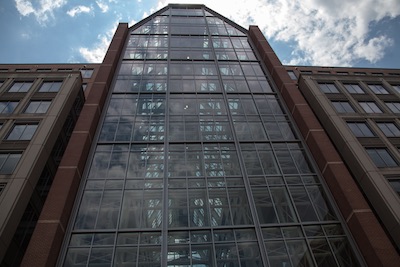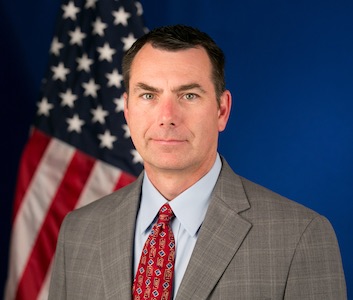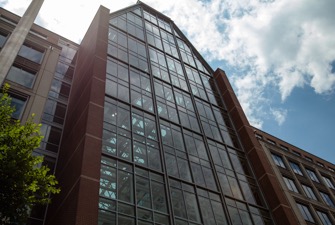A new PTO Director will face a patent system at a crossroads
 The U.S. patent system is at a crossroads. See The Top 3 Reasons the U.S. patent system is in decline. In both 2016 and 2017, the Chinese government made significant improvements to its patent rules and laws. See China relaxing barriers to software and business method patents. As the Chinese landscape for patents and innovation continues to improve, we have to consider that more innovation might move to China, as investors flee in search of better legal protections – protections necessary to justify the speculative investment in early-stage high-tech innovative companies.
The U.S. patent system is at a crossroads. See The Top 3 Reasons the U.S. patent system is in decline. In both 2016 and 2017, the Chinese government made significant improvements to its patent rules and laws. See China relaxing barriers to software and business method patents. As the Chinese landscape for patents and innovation continues to improve, we have to consider that more innovation might move to China, as investors flee in search of better legal protections – protections necessary to justify the speculative investment in early-stage high-tech innovative companies.
Time is of the essence for the U.S. patent system. The 2017 worldwide patent rankings of the U.S. Chamber of Commerce already shows the United States tumbling from 1st place into a tie for 10th place with Hungary.
With strong and principled leadership, it is not too late to turn the tide and restore the United States patent system to its former glory. With this in mind, I recommend in the strongest terms possible that the person selected as the next Director of the United States Patent and Trademark Office (USPTO) share a vision for a stronger U.S. patent system that is once again the envy of the world.
Trump’s proposed budget would give PTO $3.6 billion for FY 2018
 Several weeks ago, President Donald J. Trump released his proposed FY 2018 budget under the title A New Foundation for American Greatness. A review of the budget and supporting Commerce Department Appendix suggests the United States Patent and Trademark Office (USPTO) has received everything it requested, and will not suffer fee diversion during the next fiscal year if the President’s FY 2018 budget passes Congress.
Several weeks ago, President Donald J. Trump released his proposed FY 2018 budget under the title A New Foundation for American Greatness. A review of the budget and supporting Commerce Department Appendix suggests the United States Patent and Trademark Office (USPTO) has received everything it requested, and will not suffer fee diversion during the next fiscal year if the President’s FY 2018 budget passes Congress.
The President’s Message on FY 2018 Budget
“This Budget’s defining ambition is to unleash the dreams of the American people,” President Trump wrote in the Budget Message of the President accompanying the release of the FY 2018 budget. “This requires laying a new foundation for American Greatness.”
06.27.17 | Patent Issues, posts, USPTO | Gene Quinn
On the Record with Russ Slifer
 Russ Slifer is the former Deputy Under Secretary of Commerce for Intellectual Property and Deputy Director of the United States Patent and Trademark Office (USPTO). Slifer resigned from this position he held for nearly two years on Friday, January 20, 2017.
Russ Slifer is the former Deputy Under Secretary of Commerce for Intellectual Property and Deputy Director of the United States Patent and Trademark Office (USPTO). Slifer resigned from this position he held for nearly two years on Friday, January 20, 2017.
During his time at the Patent Office, I tried to get an interview with Slifer on a variety of occasions, but those efforts all went for naught. Upon his resignation, Silfer agreed to an interview, which took place via telephone on Monday, March 20, 2017. The entire 3-part interview transcript is available on IPWatchdog.com. What follows are the highlights.
Slifer on the mechnics and timing of resigning from a political appointment:
SLIFER: Each department in the Executive branch, let’s say the Department of Commerce has a White House liaison that interfaces between the political appointees that are under the Department of Commerce and the White House regarding employment issues. So when we’re approaching the end of an administration, they’re working with us on the transition out. They provided us a letter that came from the White House, let’s see, I think it was probably in December, maybe early December, that outlined that the President wanted all of our letters of resignation on file by a certain date and our intended date of departure. We were instructed that our resignation would be no later than noon on January 20th. So we basically got an instruction from the White House that they wanted everybody’s resignation letter and what it would say in it.
04.25.17 | Inter Partes Review, Patent Issues, posts, USPTO | Gene Quinn
Does the USPTO paying for shared services violate the AIA?
 During the August 20, 2015, Patent Public Advisory Committee (PPAC) meeting, USPTO Director Michelle Lee first announced what was known as the shared services initiative. Today, “shared services” has been re-branded “enterprise services,” but the initiative remains the same.
During the August 20, 2015, Patent Public Advisory Committee (PPAC) meeting, USPTO Director Michelle Lee first announced what was known as the shared services initiative. Today, “shared services” has been re-branded “enterprise services,” but the initiative remains the same.
In 2015, Lee explained the shared services initiative by saying that agencies falling under the Department of Commerce would utilize shared services for human resources, information technology and procurement functions. The fear then, however, was that the USPTO’s user fees would be used to pay for the IT and other needs of other Commerce agencies when those funds are supposed to be used only for the operation of the USPTO. See AIPLA letter to Secretary Pritzker and Under Secretary Lee. That is precisely what is happening now, only worse.
The new reality today is that the USPTO is paying for shared services that are simply not shared. According to Frank Murphy, Acting Chief Financial Officer, who recently spoke at a PPAC public meeting, the USPTO will not be using the services because the USPTO systems are superior to the shared services being created. The USPTO is still, nonetheless, paying for the creation of these services.
03.27.17 | posts | Gene Quinn
Board ends interference on CRISPR
 The Patent Trial and Appeal Board (PTAB) of the United States Patent and Trademark Office (USPTO) has issued a decision in the CRISPR patent interference pending between The Broad Institute, Inc. (the Junior Party; second filer) and The Regents of the University of California (the Senior Party; first filer). The dispute is related to U.S. Patent Nos. 8,697,359; 8,771,945; 8,795,965; 8,865,406; 8,871,445; 8,889,356; 8,895,308; 8,906,616; 8,932,814; 8,945,839; 8,993,233; 8,999,641; and U.S. Patent Application Serial No. 14/704,551.
The Patent Trial and Appeal Board (PTAB) of the United States Patent and Trademark Office (USPTO) has issued a decision in the CRISPR patent interference pending between The Broad Institute, Inc. (the Junior Party; second filer) and The Regents of the University of California (the Senior Party; first filer). The dispute is related to U.S. Patent Nos. 8,697,359; 8,771,945; 8,795,965; 8,865,406; 8,871,445; 8,889,356; 8,895,308; 8,906,616; 8,932,814; 8,945,839; 8,993,233; 8,999,641; and U.S. Patent Application Serial No. 14/704,551.
The PTAB, in a per curiam decision, wrote:
Broad has persuaded us that the parties claim patentably distinct subject matter, rebutting the presumption created by declaration of this interference. Broad provided sufficient evidence to show that its claims, which are all limited to CRISPR-Cas9 systems in a eukaryotic environment, are not drawn to the same invention as UC’s claims, which are all directed to CRISPR-Cas9 systems not restricted to any environment. Specifically, the evidence shows that the invention of such systems in eukaryotic cells would not have been obvious over the invention of CRISPR-Cas9 systems in any environment, including in prokaryotic cells or in vitro, because one of ordinary skill in the art would not have reasonably expected a CRISPR-Cas9 system to be successful in a eukaryotic environment. This evidence shows that the parties’ claims do not interfere. Accordingly, we terminate the interference.
03.23.17 | Biotech, Patent Issues, USPTO | Gene Quinn


No Comments
07.26.17 | Patent Issues, posts, USPTO | Gene Quinn